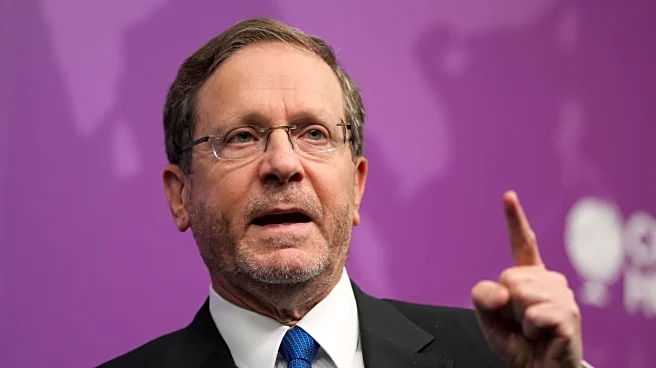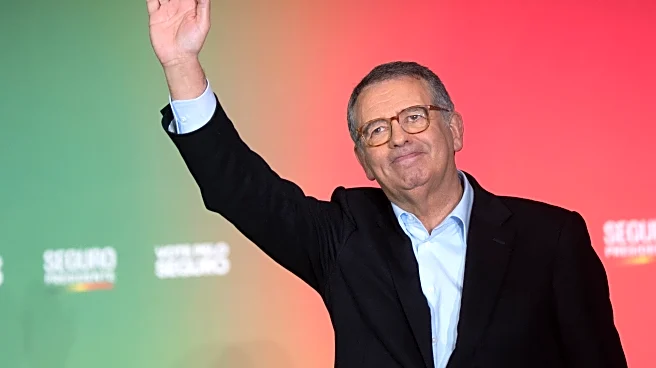What is the story about?
What's Happening?
Tom Rogers, executive chairman of Oorbit Media & Entertainment and editor-at-large at Newsweek, has publicly criticized the silencing of opinions under the guise of honoring Charlie Kirk. Rogers, who previously served as president of NBC Cable, expressed his concerns during an appearance on 'Fast Money.' He addressed the Federal Trade Commission's (FTC) recent actions against ABC, which included the decision to remove Jimmy Kimmel from the air. Rogers argued that such measures contradict the principles that Charlie Kirk stood for, emphasizing the importance of free speech and open dialogue. The controversy highlights ongoing debates about media censorship and the role of regulatory bodies in shaping public discourse.
Why It's Important?
The criticism from Tom Rogers underscores a significant tension in the media landscape regarding censorship and freedom of expression. As regulatory bodies like the FTC take actions that impact media outlets, there is growing concern about the balance between regulation and free speech. This issue is particularly relevant in the context of honoring public figures like Charlie Kirk, who advocated for open dialogue. The implications of these actions could affect media companies, broadcasters, and the public's access to diverse viewpoints. Stakeholders in the media industry may need to navigate these challenges while ensuring compliance with regulatory standards.
What's Next?
The ongoing debate about media censorship and regulatory actions is likely to continue, with potential implications for media companies and public discourse. Stakeholders, including media executives and regulatory bodies, may engage in discussions to address these concerns and find a balance between regulation and freedom of expression. The outcome of these discussions could influence future policies and practices in the media industry, impacting how content is produced and consumed.
Beyond the Headlines
The broader implications of this controversy may include ethical considerations about the role of media in society and the responsibilities of regulatory bodies. The debate touches on fundamental questions about the limits of free speech and the impact of censorship on democratic values. As media companies and regulators navigate these issues, there may be long-term shifts in how media content is managed and the role of public figures in shaping discourse.
















